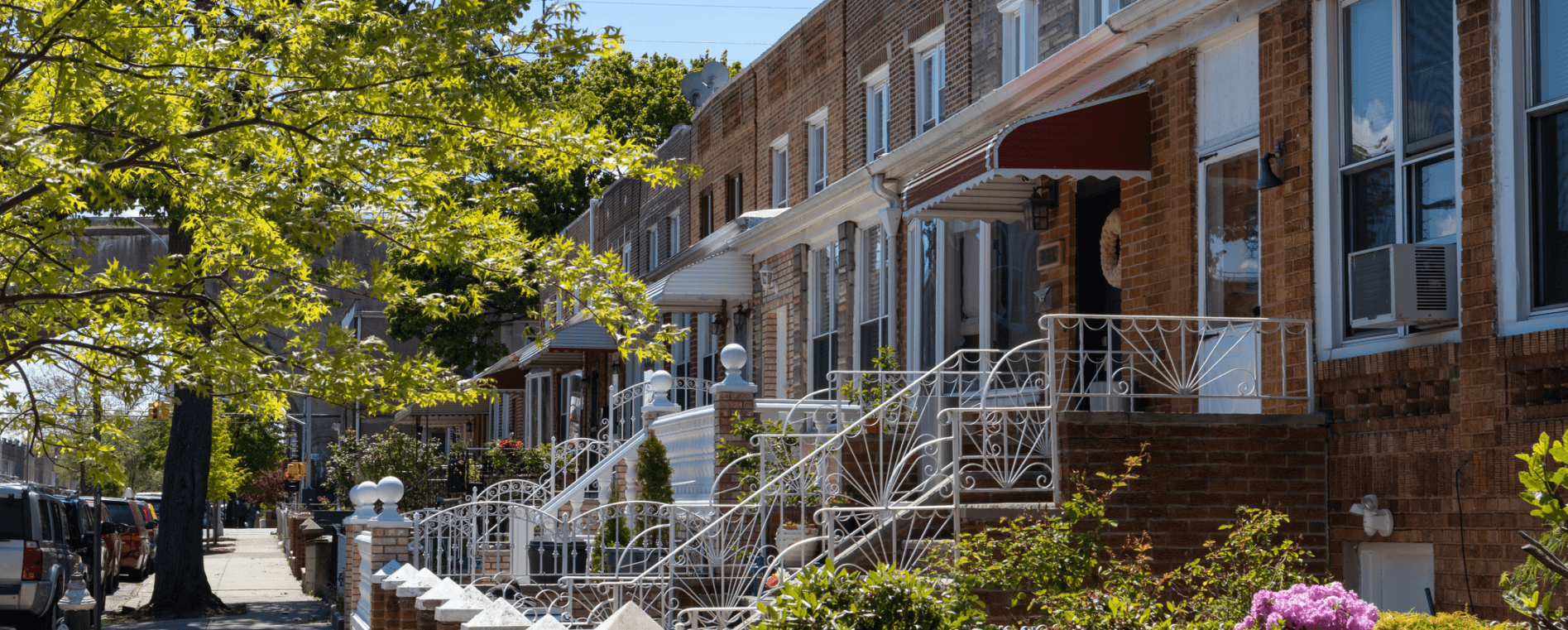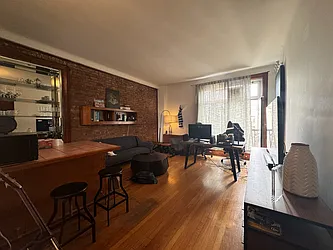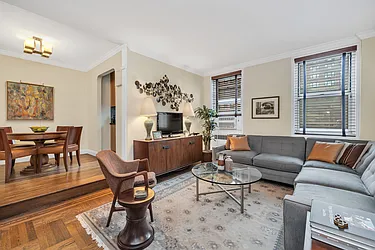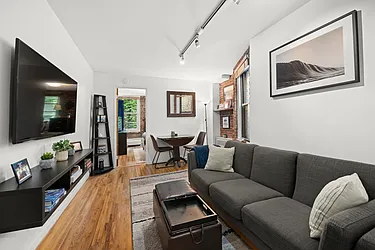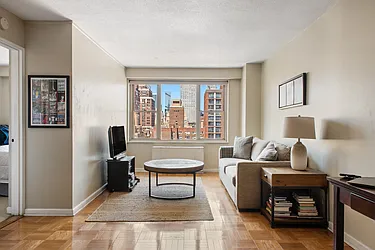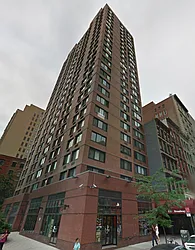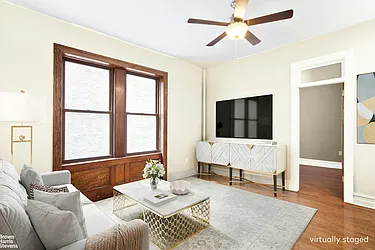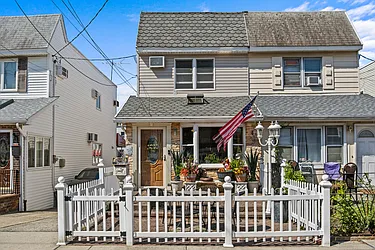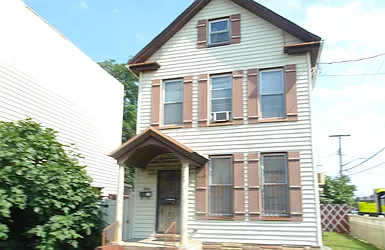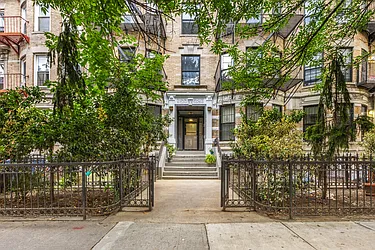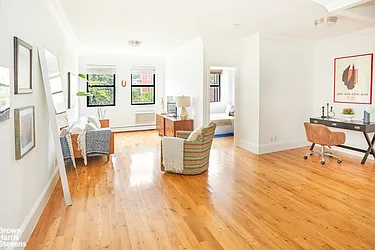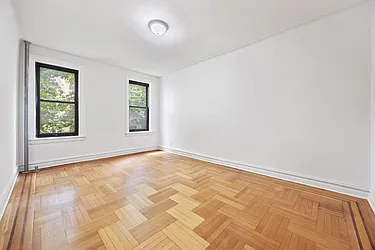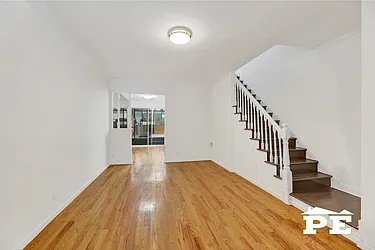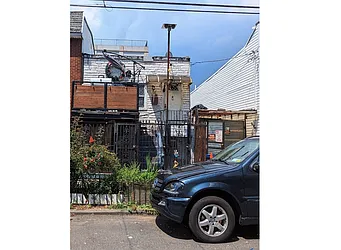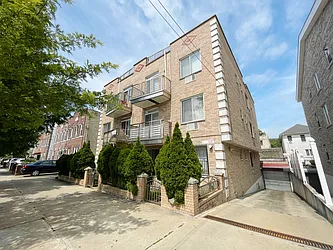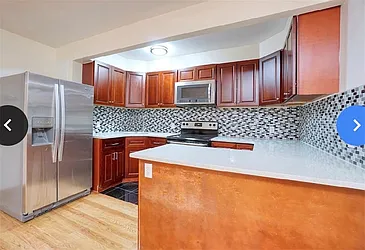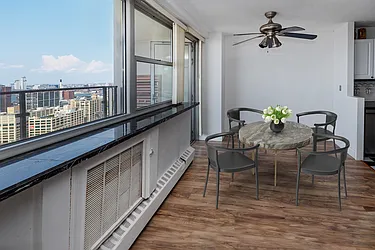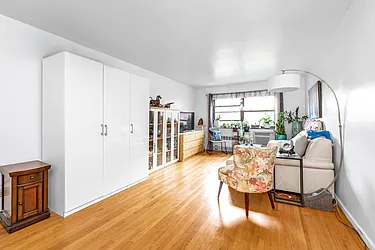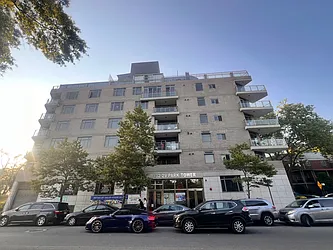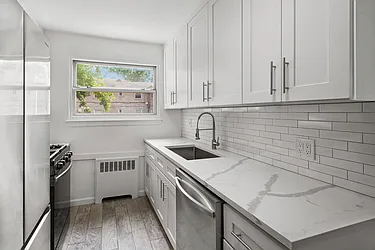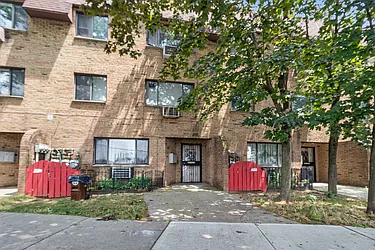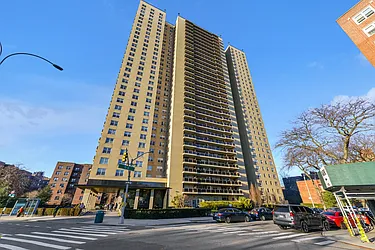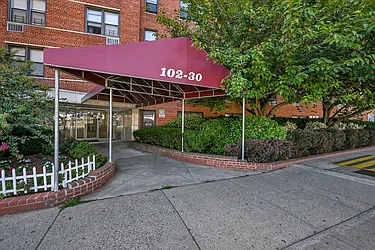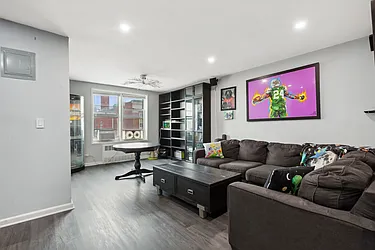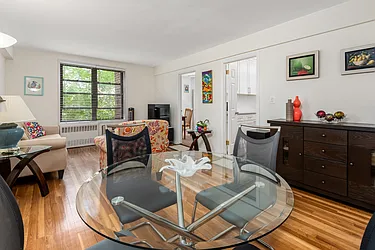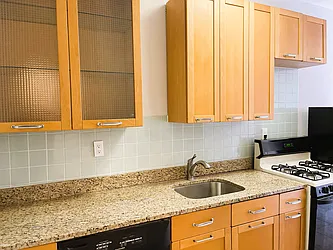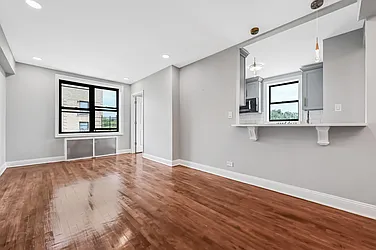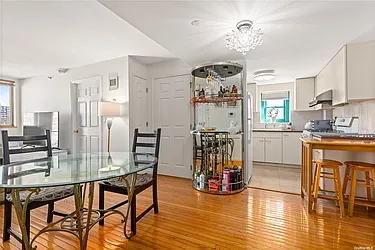Buying Your First Home in NYC
Buying a home in NYC is complicated, but rewarding. If you're a first-time home buyer, or even a returning buyer who needs a refresher, this guide will provide you with tips and strategies for your home-buying journey.
A few of the topics covered in this guide include: how to find your dream home, how to find a buyer's agent, how to prepare for a co-op board interview (and what even is a co-op vs. a condo?), information about home inspections, home loans and mortgages, and much more! We hope these articles will help you make educated decisions and feel a little more confident as you begin this journey — whether you're a first-time home buyer or a real estate veteran. Happy home shopping!Purchasing New York City real estate can be a slow, grueling process. Once you submit an offer on a home, it can take weeks or even months before you get a closing date. So if you’re wondering, how long does it take to close on a home? You’ve come to the right place.
Put simply, both your real estate agent and your real estate lawyer are required to go through the purchase process with you, one step at a time. Since there are many people involved, it’s never as straightforward as you might expect. But the goal is to protect you and your interests, from offer to closing, so it’s all for a good cause. Let’s review how long it takes to close on a home.
Manhattan Homes Under $800K on StreetEasy Article continues below
What to Expect After Making an Offer on a Home
Put simply: it won’t cinch a home closing. Just because your agent submitted an offer doesn’t mean it will get accepted. Yours may be the only offer, or there may be multiple offers to be considered. Also, there may be a counteroffer unless you come in at full price or close to ask.
Getting to the point where you and the seller agree to the same terms might happen within a day. Or, it might be prolonged over several weeks. It all depends on the aggressiveness of the negotiations and the required terms.
Once the seller and buyer agree to both price and conditions, the deal moves into the contract stage. This is where a real estate lawyer comes into play.
Why You’ll Need a Real Estate Lawyer for a Home Closing
New York state real estate transactions need an attorney’s approval. The duration of the New York real estate home closing process is often tied to the expertise and diligence of the transaction’s lawyers, so it’s vital to have a good real estate lawyer, especially for a home closing.
“Having the right attorney can make a huge difference in how smoothly the transaction proceeds,” says real estate attorney Lior Aldad of Aldad & Associates. A New York real estate lawyer handles all aspects of the closing process, including:
- Conducting due diligence: Your lawyer reviews everything, from the property’s offering plan and financials to the board minutes. You will be advised of any legal concerns.
- Drafting your contract of sale: Once the details of the deal are hammered out, a contract of sale is drafted, usually by the seller’s real estate lawyer. Your lawyer will review the price, terms, conditions, and contingencies to ensure you’re fairly represented and protected. Any revisions or edits will be made and agreed upon, so that the contract can be signed. A solid and clear contract of sale is necessary for a smooth transaction. This process can take one to two weeks, depending on the specific issues that arise during the lawyers’ evaluation.
- Drafting a rider, if needed: Sometimes, a contract of sale doesn’t fully protect a buyer. If this is the case, your lawyer can create a rider with additional terms, like mortgage contingencies.
- Scheduling and running a home closing: It’s your lawyer’s job to arrange all parties involved for the real estate closing. (That’s a lot of effort considering at least eight parties are involved.) Once scheduled, it’s also your lawyer’s job to ensure that the closing runs smoothly and that all necessary paperwork and checks are in order.
First-time home buyer?
Buy with an ExpertYou Need a Home Inspection Before a Home Closing
Prior to signing the contract, you may be advised to conduct a home inspection. Though not required, an inspection can be an important part of the home buying process way before a home closing — especially if you’re purchasing an older property. It’s also a good idea if you’re buying in a small building with few units. This way, you understand what your responsibility as an owner might be if something needs repairing.
Luckily, home inspections can usually be scheduled quickly — sometimes within hours. But you might not see the actual report until a day or two after the inspection. If any defects come up that were not expected, you may be in a position to ask for a price reduction or credit at closing. This negotiation may add a couple of days to the process.
How to Get a Mortgage Commitment
The following is one of the most vital ingredients for a home closing. If you’re financing your purchase, you will now pass your fully executed contract to your lender. You should already have an established relationship with this party by now, whether it’s a mortgage broker or a direct lender. (If you’re a cash buyer, this section does not apply to you.)
This is the point in the home closing process where you go from being preapproved for a purchase to getting a commitment letter from the lender. To do this, you and the lender will go through a two-part process.
- Submit your financials: The lender’s underwriter will conduct an audit. For this, you will need to submit bank statements, pay stubs, W2s, tax returns, outstanding liabilities, etc. Similar to your lawyer, the underwriter will also be taking a look at the property’s offering plan.
- Conduct an appraisal: The lender will conduct an appraisal to ensure that the value of the property is in line with what is being loaned for its purchase. Since the property will be used as collateral, the lender needs to ensure that the purchase price is justified. The lender wants to be protected in case you default on your mortgage.
What If My Apartment Appraises Below the Purchase Price?
Sometimes apartments do appraise below the value of the purchase price. This can happen for a variety of reasons, including:
- Lack of neighborhood knowledge: If an area is in the process of gentrifying, for example, there could simply not be much hard knowledge about it yet.
- Incorrect assessment of comparable units: For example, it’s possible that finishes and renovations were not calculated into the equation.
- No consideration of new developments: Buyers in the New York real estate market are willing to pay a premium for new builds. Appraisers might not factor that into their assessment.
If your appraisal does come back too low, you have options. You can:
- Get another appraisal.
- Ask for an exception.
- Put more money down.
- Renegotiate the deal.
- Cancel the transaction.
Once the appraisal comes back to the lender, and underwriting has completed its review, the lender will issue the commitment letter. This process might take anywhere from 30 to 45 days. However, in extreme circumstances, it can take longer. It’s all dependent on the underwriting process and how many follow-ups are required. Learn more about home appraisals in NYC.
Brooklyn Homes Under $800K on StreetEasy Article continues below
What’s Involved in the Board Application Process
If you’re buying a co-op (or sometimes a condo), the building’s board will require you to submit an application before closing. If you’re buying a multi-family home or townhouse, this process doesn’t apply. Submitting a board application requires a lot of paperwork, which your broker will help with.
There is a fairly significant difference between condos and co-ops. Condos only have the right of first refusal, meaning that the condo board has the right to purchase the property at the same price as you’re paying for it. Once you provide all necessary paperwork to the management company, you’re simply waiting for a waiver that declines their right of first refusal. This can take between a few days and a month.
Co-ops, on the other hand, review all the paperwork in addition to subjecting buyers to an in-person co-op board interview. The interview has to be coordinated with numerous board members and the prospective buyer, and this process can take anywhere from a few weeks to a few months.
Scheduling a Home Closing
When you receive board approval, your broker will inform you and reach out to your lawyer about scheduling the closing. Your lawyer will take over from here by connecting with the bank to ensure they’re providing clearance to close and are ready to show up with checks.
Additionally, your lawyer will coordinate with a title company to prepare a title report for the closing. This ensures that your property is free of any encumbrances or legal claims prior to being transferred to you. You can expect this process to take about one to two weeks before you receive a firm closing date. It really all depends on the availability of all the required parties.
Queens Homes Under $800K on StreetEasy Article continues below
A Caveat for New Developments
If you’re buying in a new development or pre-construction, that changes the timing of everything. You may be able to get a property into contract 2 to 3 years in advance of any closings taking place. If there are construction delays, this time period can increase dramatically.
Buyers might be tempted to buy into a project if the developer tells them that closings will take place in a few months. This is risky, particularly for investors who are looking to flip from one property to another through the use of a 1031 exchange. That’s when an investor is allowed to “defer” paying capital gains taxes on an investment property after it’s sold, so long as the profit is used to purchase another “like-kind property.”
“The risk is that the investor will need to close within the 180 days, as per the strict guidelines of Internal Revenue Code, from the date of their sale (of the relinquished property),” said Aldad. “Yet, the project of their acquired property will not be ready.”
Even for buyers who aren’t investors, the uncertainty around closing time can have an adverse impact. Why? Because the buyer might also have other commitments they need to juggle, such as an existing lease or the sale of their current property.
Estimate Two Months Between Offer and Closing
As you can see, there are many factors involved in the process between submitting your first offer on a property and closing on it. Are you buying all cash or financing? How quickly can you get a commitment letter from your lender? Are you buying a condo or a co-op? How long have you negotiated the offer? All these nuances make a significant difference when it comes to timing. To be on the safe side, if you are financing a property, always estimate that it will take about two months before all is said and done.
Find your next home on StreetEasyDisclaimers: The content on this site is not intended to provide legal, financial, or real estate advice. It is for information purposes only, and any links provided are for the users’ convenience. Please seek the services of a legal, accounting, or real estate professional before any real estate transaction.
StreetEasy earns a referral fee from successful Experts’ transactions, at no cost to the buyer or seller. Experts must meet StreetEasy’s standards of service and market expertise. Agents in our Experts Network have closed deals on homes similar to the seller’s or similar to homes the buyer is searching for. We measure their performance to make sure buyers and sellers get top-notch service.
